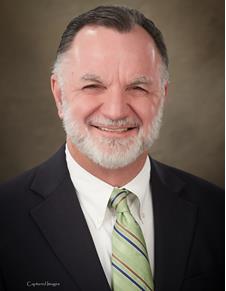
Recently, hundreds of people arrived in Fort Scott to create an ESPN, “Red Bull Special” about motocross riding. Ten of the world’s top riders came from as far as Belgium and Australia to compete in what they called “the most competitive event ever.” Hollywood producers, camera people, event coordinators and hill design specialists worked on my son’s and daughter-in-law’s ranch to turn a few acres into what I called a “crazy land.”
For days ahead, the riders checked out the 120+ possible jumps, knowing that they would be judged for their three-minute, death-defying tricks. I had no idea what to expect, but over 1,000 race-lovers did, so weeks ahead of time, they purchased tickets to sit in the grandstands to cheer on these daredevils.
Because the event was held on Adam and Jenn’s land, I was allowed to watch the practices. I held my breath as the riders zoomed to the top of one hill, only to take off and land 150-feet away on the down slope of another hill. Sometimes they somersaulted their motorcycles in mid-air or did handstands on their bikes while holding on to the handlebars, looming forty feet over our heads.
The day before the race, Tyler, the biker who first had the dream to create this happening, walked into Adam and Jenn’s kitchen to talk with some of the soldiers who had come to watch. I told him that I was terrified with what I saw and asked if he ever had broken any bones. He listed them: both feet; both femurs; most ribs; a collarbone; wrists (multiple times); and both arms, one a compound fracture twelve weeks earlier. He added that there had been several ACL tears and concussions.
On the day previous, Tyler had mastered a vault with such difficulty that all the other practicing racers stopped and applauded. I asked him about it. “For four days,” he said, “I have stayed awake at night, dreaming of how to tackle that jump. I’d never mastered a hill with that degree of difficulty, but I had to do it. I just got into my ‘hollow head’ and made it happen.”
“Your what?” I asked. Tyler explained that when he is overcome with fear, he allows nothing else to enter his head besides conquering that terror. I asked the soldiers if they knew about a “hollow head.” They nodded. One answered, “When you’re in Iraq with rifles drawn, and you’re entering a home, unaware of what’s on the other side of the door, you have to be 100% focused if you plan to come out alive.” The bikers and the soldiers were kindred spirits, even though their motives were drastically different.
What makes some people determined that Fear will not win, and others let it defy who they are? Why can’t we all allow “hollow head” to direct our focus in whatever we need to conquer? If these riders and soldiers allow that mindset to help them do deathly, fearful things, shouldn’t we too be able to replace our anxious thoughts with a determination to master those silent enemies?
According to Proverbs 12:25, “Anxiety weighs down the heart of a man, but a good word cheers it up.” By speaking only encouragement to our souls, could we dare tackle something about which we have been uneasy or alleviate something that keeps us stagnant?
I love how Jesus put it as recorded in John 14:27: “Peace I leave with you; my peace I give to you; I do not give it to you as the world does. Do not let your hearts be distressed or lacking in courage.” Jesus offers us his peace. Today, let’s boldly look at whatever we fear, hollow our heads and give Jesus a chance. All we have to do is ask.





